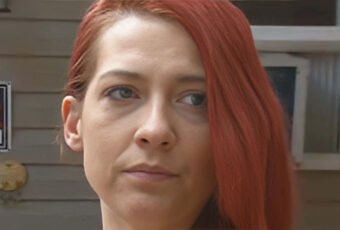Frontotemporal dementia (FTD) is a disorder that affects the frontal and temporal lobes of the brain, resulting in changes in behavior, personality, and language. While less well-known than other types of dementia, such as Alzheimer’s disease, FTD is becoming increasingly recognized as a significant public health issue. Recently, actor Bruce Willis announced that he had been diagnosed with FTD, bringing the disorder into the spotlight. In this blog post, we’ll explore what FTD is, how it differs from other types of dementia, and what implications Willis’ diagnosis has for raising awareness of the disorder.
What is Frontotemporal Dementia?
Frontotemporal dementia is a type of dementia that primarily affects the frontal and temporal lobes of the brain, which are responsible for functions such as language, behavior, and personality. FTD is caused by degeneration of the neurons in these regions, leading to changes in the brain’s structure and function. The symptoms of FTD can vary depending on which part of the brain is affected, but commonly include:
- Changes in behavior and personality, such as increased impulsivity, apathy, or social withdrawal
- Difficulty with language, including speaking, understanding, and writing
- Changes in motor function, such as tremors, stiffness, or difficulty with coordination
- Changes in executive function, including planning, decision-making, and problem-solving
FTD is less common than other types of dementia, such as Alzheimer’s disease, but is still a significant public health issue. It typically affects individuals between the ages of 45 and 65, and is more common in men than women. While there is currently no cure for FTD, early diagnosis and intervention can help to manage symptoms and improve quality of life.
Bruce Willis and FTD
In January 2022, Bruce Willis announced that he had been diagnosed with FTD. The news was met with shock and sadness from fans around the world. Willis is best known for his roles in action movies like Die Hard and Armageddon, but he has also been praised for his dramatic performances in films like Pulp Fiction and Moonrise Kingdom.

The announcement also drew attention to FTD, a disorder that is not as well-known as Alzheimer’s disease. Many people assume that all types of dementia are the same, but FTD is distinct from other forms of dementia because it affects different areas of the brain.
Willis’ diagnosis has also sparked conversation about the stigma surrounding dementia. Many people assume that dementia only affects the elderly, or that it is a natural part of aging. In reality, dementia can affect people of all ages, and it is a debilitating and life-changing condition. By speaking openly about his diagnosis, Willis is helping to reduce the stigma surrounding dementia and raising awareness of the need for better treatments and a cure.
How FTD Differs from Other Types of Dementia
While FTD shares some similarities with other types of dementia, such as Alzheimer’s disease, there are some key differences in terms of symptoms, progression, and underlying biology. Some of the ways in which FTD differs from other types of dementia include:
- Age of onset: FTD typically affects individuals in their 40s, 50s, and 60s, whereas Alzheimer’s disease is more common in individuals over the age of 65.
- Symptoms: While memory loss is a hallmark symptom of Alzheimer’s disease, it is less common in FTD. Instead, individuals with FTD may experience changes in behavior, personality, and language.
- Brain regions affected: FTD primarily affects the frontal and temporal lobes of the brain, whereas Alzheimer’s disease affects the hippocampus and other regions involved in memory.
- Progression: FTD tends to progress more rapidly than Alzheimer’s disease, with individuals typically experiencing significant decline within a few years of diagnosis.
- Genetics: While there is a genetic component to both FTD and Alzheimer’s disease, the genes associated with FTD tend to be different from those associated with Alzheimer’s disease.
Understanding the differences between FTD and other types of dementia is important for accurate diagnosis and effective management of symptoms. While there is currently no cure for FTD, research is ongoing to better understand the disorder and develop new treatments. Raising awareness of FTD and reducing stigma around the disorder is also crucial for supporting individuals with FTD and their families.
Treatment and Management of FTD
While there is currently no cure for frontotemporal dementia (FTD), early diagnosis and intervention can help to improve quality of life and manage symptoms. Treatment options for FTD are limited, as the disorder affects different brain regions and functions than other types of dementia, such as Alzheimer’s disease. However, some strategies that may be helpful for managing FTD symptoms include:
- Medication: While there are no medications specifically approved for FTD, certain drugs may be prescribed to manage symptoms such as depression, anxiety, or agitation. These may include antidepressants, antipsychotics, or anti-anxiety medications. However, these medications can have side effects and should be used with caution.
- Behavioral therapy: FTD can affect behavior, personality, and social interactions, and behavioral therapy can help individuals with FTD and their families navigate these changes. This may involve working with a therapist to develop coping strategies, communication techniques, and social skills.
- Occupational therapy: Occupational therapists can help individuals with FTD to maintain independence and engage in meaningful activities. They may suggest adaptations to the home environment, such as installing grab bars or removing tripping hazards, as well as activities that can improve cognition and motor skills.
- Support groups: FTD can be a challenging and isolating disorder, both for individuals with FTD and their caregivers. Support groups can provide a sense of community, emotional support, and practical advice for coping with the disorder.
Frontotemporal dementia is a complex and challenging disorder that can have a significant impact on individuals and their families. While there is currently no cure for FTD, there are strategies for managing symptoms and improving quality of life. Early diagnosis is key to accessing these interventions, as well as for planning for the future and accessing resources and support. By raising awareness of FTD and reducing stigma around the disorder, we can support efforts to find better treatments and ultimately a cure. If you or a loved one is experiencing symptoms of FTD, it’s important to talk to a healthcare provider and seek support.
Read more from the website:










